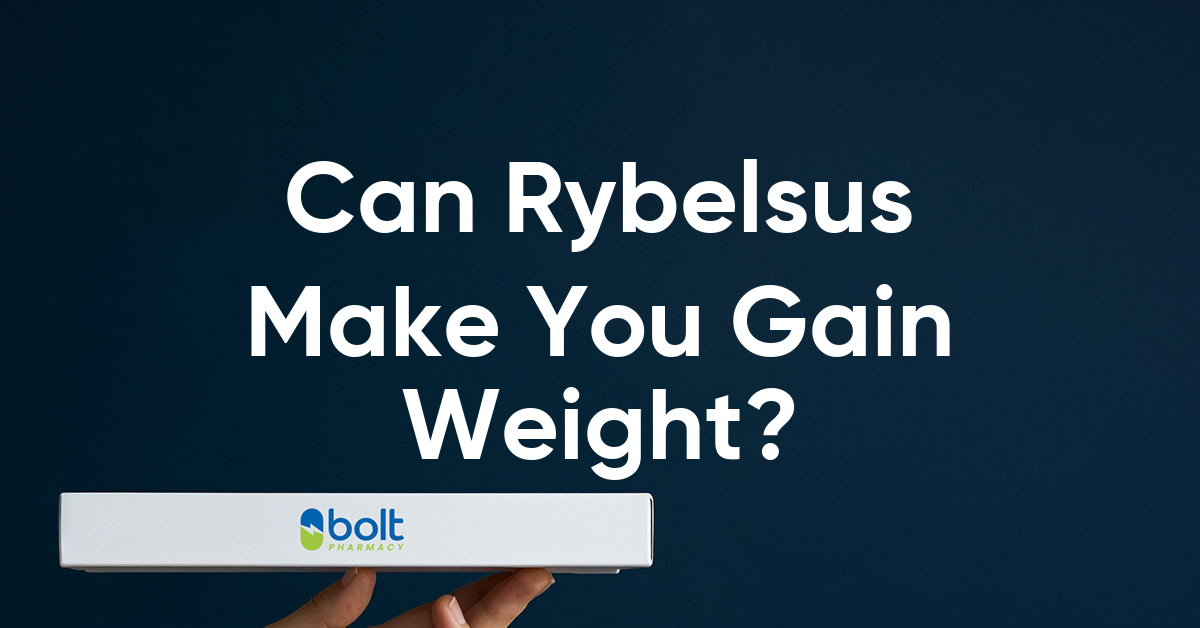Can Rybelsus make you gain weight? This is a common concern amongst patients prescribed this oral medication for type 2 diabetes. Rybelsus (semaglutide) is a glucagon-like peptide-1 (GLP-1) receptor agonist licensed by the MHRA to improve glycaemic control in adults with inadequately controlled type 2 diabetes. Clinical evidence consistently demonstrates that Rybelsus typically promotes weight loss rather than weight gain, with most patients experiencing modest reductions. However, individual responses vary, and understanding the factors that influence weight changes during treatment is essential for optimal diabetes management and realistic expectations.
Summary: Rybelsus does not typically cause weight gain; clinical trials consistently show it promotes modest weight loss in most patients with type 2 diabetes.
- Rybelsus is a GLP-1 receptor agonist that slows gastric emptying, reduces appetite, and enhances satiety through hypothalamic pathways.
- PIONEER clinical trials demonstrated dose-dependent weight reductions averaging 2–4 kg rather than weight gain.
- Weight gain is not listed as an adverse effect in the UK Summary of Product Characteristics approved by the MHRA.
- Individual weight changes may occur due to concurrent medications, improved glucose retention, gastrointestinal side effects, or lifestyle factors.
- Patients experiencing unexpected weight gain should contact their GP or diabetes specialist nurse without stopping medication abruptly.
Table of Contents
How Rybelsus Affects Weight in Type 2 Diabetes
Rybelsus (semaglutide) is an oral glucagon-like peptide-1 (GLP-1) receptor agonist licensed in the UK for the treatment of type 2 diabetes mellitus. The Medicines and Healthcare products Regulatory Agency (MHRA) approved Rybelsus as an adjunct to diet and exercise to improve glycaemic control in adults with inadequately controlled type 2 diabetes. It is important to note that Rybelsus is not licensed for weight management in the UK.
The mechanism of action involves mimicking the naturally occurring incretin hormone GLP-1, which is released from the intestine in response to food intake. Semaglutide binds to GLP-1 receptors in the pancreas, stimulating glucose-dependent insulin secretion whilst suppressing inappropriate glucagon release. This dual action helps to lower blood glucose levels with a low risk of hypoglycaemia when used as monotherapy, though this risk increases when combined with insulin or sulfonylureas.
Beyond glycaemic control, Rybelsus influences weight through several pathways. The medication slows gastric emptying, which prolongs the sensation of fullness after meals. It also acts on appetite-regulating centres in the hypothalamus, reducing hunger signals and overall caloric intake. The PIONEER clinical trials demonstrated that most patients taking Rybelsus experience modest, dose-dependent weight loss rather than weight gain, with average reductions of 2–4 kg observed across studies.
NICE guidance (NG28) recognises GLP-1 receptor agonists as valuable treatment options for people with type 2 diabetes who have not achieved adequate control with other therapies, particularly when weight loss would be beneficial. The weight-reducing properties of Rybelsus make it an appropriate option for patients with type 2 diabetes and concurrent obesity, addressing two interconnected metabolic conditions simultaneously.
Why Some People May Experience Weight Changes on Rybelsus
Whilst weight loss is the typical response to Rybelsus therapy, individual experiences can vary considerably. Understanding why some patients might notice different weight trajectories requires consideration of multiple physiological and behavioural factors.
Gastrointestinal adverse effects—including nausea, vomiting, diarrhoea and constipation—are common with GLP-1 receptor agonists as noted in the UK Summary of Product Characteristics (SmPC). These symptoms may paradoxically lead to dietary changes that affect weight. Patients who reduce physical activity due to feeling unwell, or who compensate for nausea by consuming more easily tolerated high-calorie foods, might not experience the expected weight loss.
Metabolic adaptation also plays a role. As blood glucose control improves with Rybelsus, the body loses fewer calories through glycosuria (glucose in urine). In patients with previously very poor glycaemic control, this improved glucose retention could theoretically offset some weight loss, though significant weight gain from this mechanism alone would be unusual.
Certain concomitant medications may influence weight trajectories. Patients taking insulin or sulfonylureas alongside Rybelsus might require dose adjustments; if these doses are not appropriately reduced as glycaemic control improves, the risk of hypoglycaemia increases. Hypoglycaemia can lead to compensatory eating and the anabolic effects of insulin could contribute to weight stability or modest gain. Other medications known to promote weight gain—such as some antipsychotics, antidepressants, or corticosteroids—may counteract Rybelsus's weight-reducing effects.
It is important to note that there is no established pharmacological mechanism by which Rybelsus directly causes weight gain. Any weight increase observed during treatment is more likely attributable to individual circumstances, concurrent medications, or lifestyle factors rather than the medication itself.
What to Do If You Notice Weight Gain While Taking Rybelsus
If you observe unexpected weight gain whilst taking Rybelsus, several practical steps can help identify the cause and guide appropriate management.
Document the pattern carefully. Keep a record of your weight measurements taken at consistent times (ideally first thing in the morning after emptying your bladder). Note whether the gain is sudden or gradual. Track any concurrent symptoms such as ankle swelling, breathlessness, or changes in urination, which might indicate fluid retention requiring medical assessment.
Review your dietary intake and physical activity. Gastrointestinal side effects from Rybelsus sometimes lead patients to modify their eating patterns, potentially choosing more processed or energy-dense foods that are easier to tolerate. Similarly, if you have reduced your activity levels due to feeling unwell, this decreased energy expenditure could contribute to weight changes. A food and activity diary can provide valuable insights.
Contact your GP or diabetes specialist nurse to discuss your concerns. Do not stop taking Rybelsus without medical advice, as abrupt discontinuation could lead to deterioration in your glycaemic control. Your healthcare team can:
-
Review your current medication regimen for potential interactions
-
Assess whether dose adjustments are needed (for Rybelsus or other diabetes medications, particularly insulin or sulfonylureas)
-
Check for signs of fluid retention or other medical causes
-
Evaluate your overall diabetes management and HbA1c trends
-
Provide referral to a dietitian for personalised nutritional guidance
Seek urgent medical attention if you experience severe, persistent abdominal pain (with or without vomiting), which may indicate pancreatitis. Also report any sudden visual changes promptly, as these could suggest diabetic retinopathy progression.
NICE recommends regular monitoring of body weight as part of comprehensive diabetes care. Your healthcare provider should consider whether alternative treatment options might be more suitable if weight management remains problematic despite optimised lifestyle measures. If you suspect you're experiencing side effects from Rybelsus, report them through the MHRA Yellow Card scheme.
Can Rybelsus Make You Gain Weight?
The straightforward answer is that Rybelsus does not typically cause weight gain; indeed, weight loss is the expected outcome for most patients. Clinical trial data consistently demonstrate that semaglutide, the active ingredient in Rybelsus, is associated with weight reduction rather than weight gain.
In the PIONEER clinical trial programme, which evaluated oral semaglutide across diverse patient populations, participants generally experienced dose-dependent weight loss. The PIONEER 1 trial showed mean weight reductions of 2–4 kg with Rybelsus 7 mg and 14 mg doses compared to placebo. Subsequent trials confirmed these findings across different treatment combinations and patient demographics. Importantly, weight gain was not identified as an adverse effect in the UK Summary of Product Characteristics (SmPC) as approved by the MHRA.
There is no official pharmacological link between Rybelsus and weight gain. The medication's mechanism of action—enhancing satiety, reducing appetite, and slowing gastric emptying—physiologically promotes weight loss rather than gain. Any weight increase observed during Rybelsus therapy is more appropriately attributed to individual factors such as concurrent medications, lifestyle changes, or improved glucose retention as glycaemic control improves.
That said, individual responses vary, and a small minority of patients may not experience weight loss or might even gain modest amounts of weight due to the complex interplay of factors discussed earlier. If you are concerned about weight changes whilst taking Rybelsus, this warrants discussion with your healthcare team rather than being dismissed.
Patient safety advice: Continue taking Rybelsus as prescribed unless advised otherwise by your doctor. Monitor your weight regularly and report any unexpected changes, particularly if accompanied by swelling, breathlessness, or other concerning symptoms. Remember that Rybelsus is licensed for improving glycaemic control in type 2 diabetes, not specifically for weight loss. Your diabetes care team can help distinguish between normal variation, medication effects, and issues requiring intervention, ensuring your treatment plan remains optimally tailored to your individual needs.
Frequently Asked Questions
Does Rybelsus cause weight gain in people with type 2 diabetes?
No, Rybelsus does not typically cause weight gain. Clinical trials consistently show that most patients experience modest weight loss, with average reductions of 2–4 kg, as the medication reduces appetite and slows gastric emptying.
Why might some people gain weight whilst taking Rybelsus?
Weight gain on Rybelsus is uncommon and usually relates to individual factors such as concurrent medications (insulin, antidepressants), dietary changes due to gastrointestinal side effects, reduced physical activity, or improved glucose retention as blood sugar control improves.
What should I do if I gain weight while taking Rybelsus?
Contact your GP or diabetes specialist nurse to discuss your concerns without stopping the medication. They can review your medications, assess for fluid retention or other causes, and provide referrals to dietitians if needed whilst monitoring your glycaemic control.
The health-related content published on this site is based on credible scientific sources and is periodically reviewed to ensure accuracy and relevance. Although we aim to reflect the most current medical knowledge, the material is meant for general education and awareness only.
The information on this site is not a substitute for professional medical advice. For any health concerns, please speak with a qualified medical professional. By using this information, you acknowledge responsibility for any decisions made and understand we are not liable for any consequences that may result.
Heading 1
Heading 2
Heading 3
Heading 4
Heading 5
Heading 6
Lorem ipsum dolor sit amet, consectetur adipiscing elit, sed do eiusmod tempor incididunt ut labore et dolore magna aliqua. Ut enim ad minim veniam, quis nostrud exercitation ullamco laboris nisi ut aliquip ex ea commodo consequat. Duis aute irure dolor in reprehenderit in voluptate velit esse cillum dolore eu fugiat nulla pariatur.
Block quote
Ordered list
- Item 1
- Item 2
- Item 3
Unordered list
- Item A
- Item B
- Item C
Bold text
Emphasis
Superscript
Subscript












